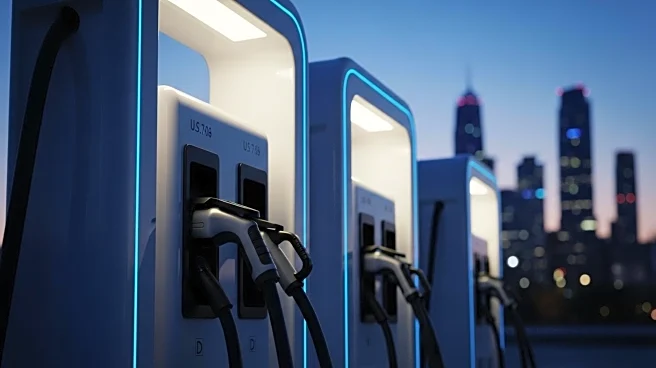What's Happening?
In August, U.S. electric vehicle (EV) sales reached a new record with 146,332 units sold, marking a 9.9% share of total new car sales, according to Cox Automotive's Kelley Blue Book. This surge is attributed to the impending expiration of the federal EV tax credit on September 30, which has motivated consumers to purchase EVs. Despite Tesla remaining the leader in U.S. EV sales, its market share dropped to 38%, the lowest ever recorded, as its sales fell by 6.7% year-over-year. The average transaction price for EVs increased to $57,245, up 3.1% from July, although year-over-year prices remained flat. Incentives for EV buyers averaged over $9,000, significantly higher than the overall auto market.
Why It's Important?
The record-breaking EV sales in August highlight a significant shift in consumer behavior towards electric vehicles, driven by product innovation and the urgency created by the upcoming phase-out of the federal tax credit. This trend indicates growing competition in the EV market, with mainstream automakers introducing new models that offer consumers more choices. Tesla's declining market share suggests increased pressure from competitors, which could impact its dominance in the industry. The rise in EV sales also reflects broader environmental and economic shifts as consumers seek sustainable transportation options.
What's Next?
As the federal EV tax credit expires, the industry may experience fluctuations in sales, potentially slowing down the momentum seen in August. Automakers are likely to continue innovating and expanding their EV offerings to capture market share. Tesla may need to strategize to maintain its leadership position amidst growing competition. Analysts will be watching the market closely to see how these dynamics play out in the coming months.










